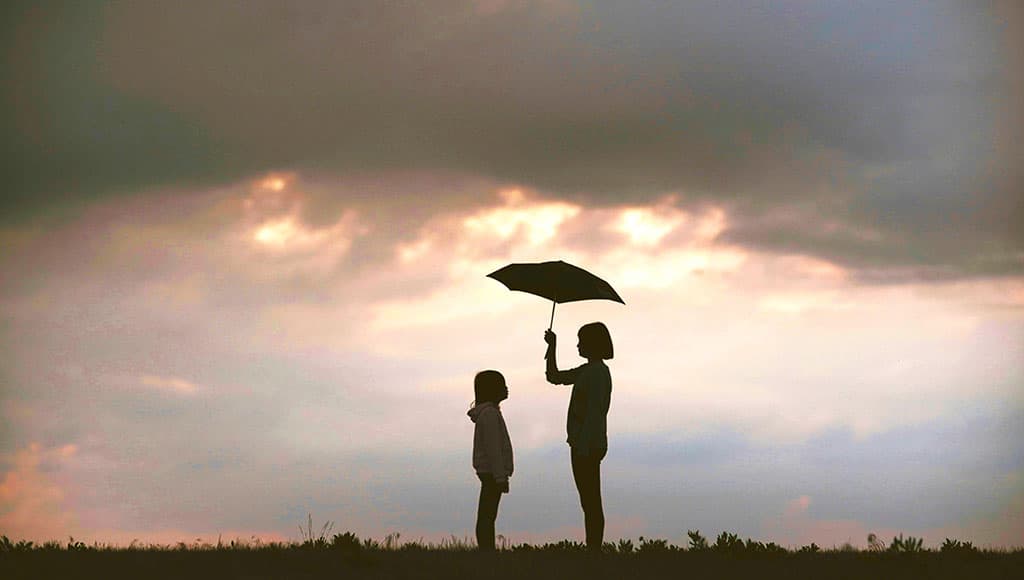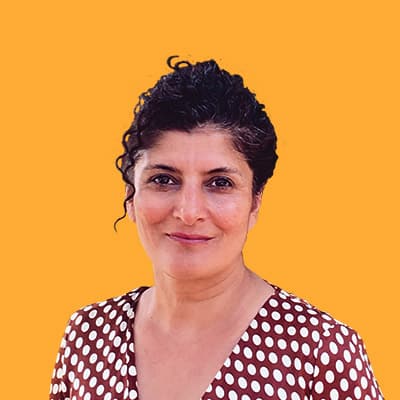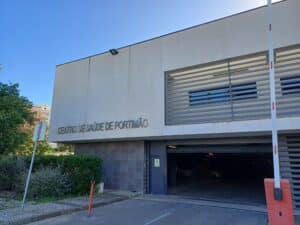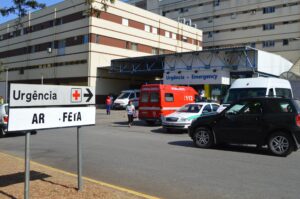A few weeks ago, the winds picked up, the skies darkened, and the rain came. Not the usual light Algarve showers, but days of relentless downpour. Trees were torn from the ground, ancient walls collapsed, beaches lost their edges, and our roads turned to rivers. The old almond tree at the end of our lane split in half, as though it had simply given up.
And then, it stopped. The birds came back. The sea calmed. We got on with it.
But something lingers after a storm like that. Not just the debris, but a kind of tension. A collective breath held. A reminder that things we thought were dependable – weather patterns, seasons, structures – are no longer guaranteed.
We say “it’s just the weather,” but it doesn’t feel like just anything anymore. It feels like a message. Something shifting.
We live in a world of compound uncertainty. Climate change is no longer a forecast – it’s visible in the trees that came down last week. But it’s not just the weather that’s causing unease. Wars rage. Rights are threatened. Elections loom with real consequences for the world order. The conversation around AI is growing louder than the one about humanity. And often, the people meant to lead seem more concerned with optics than outcomes.
There’s a hum of disquiet beneath everything – in shops, cafés, WhatsApp groups. People say, “It’s too much,” “I can’t watch the news,” “Everything feels on edge.” And that’s not a personal failure. That’s a natural response to an unnatural time.
Our nervous systems don’t distinguish much between inner and outer threat. If the world feels unstable – and it does – we carry that tension in our bodies. Even if we’re safe. Even if we’re fortunate.
‘…small doesn’t mean insignificant. Change is made up of millions of small decisions, made again and again’
Some people feel overwhelmed and shut down. Others become irritable, restless, or frozen. Many carry a quiet sadness they can’t name. It doesn’t mean we’re broken. It means we’re alive, responsive. It means we’re aware.
But awareness without action can tip into despair. Which is why steadiness matters – not as a way to numb out, but as a way to stay upright while facing what’s real.
The storms did their damage. But they also filled the dams. There’s something in that image – that disruption can also nourish, that some things must be shaken loose before change can come.
And though none of us can stop the storms, we can choose how we respond to them – both literal and metaphorical.
We can’t fix everything. But we can focus where our energy lands. We can choose who we speak to, how we behave, what we amplify. We can keep our circle intact, and sometimes expand it. That’s not powerlessness. That’s contribution.
Five guiding points for uncertain times:
1. Name the unease
That low hum of worry? It’s not just you. It’s rational. You’re not imagining the tension – you’re noticing it.
2. Focus where you can act
You may not change global policy from your garden gate, but small, local actions ripple outwards. Conversations matter. So does showing up.
3. Protect your attention
You don’t need to stay glued to a screen to prove you care. Stay informed – but take breaks. Your energy is precious.
4. Move – physically and socially
Walk, volunteer, speak, support. Being part of something outside yourself is one of the strongest antidotes to helplessness.
5. Remember you’re not alone
Progress never comes from one voice. It comes from many. And together, those voices can still turn tides.
We are not powerless. And we are not alone.
The world is changing – fast, unpredictably, and often unjustly. But the human capacity for care, connection, and courageous action hasn’t disappeared. It’s just a little harder to hear right now.
But it’s there – in how we respond, in what we choose to protect, in the ways we decide to live. Even after the storm.
Of course, it’s not just the news cycle or the weather that’s affecting us. Many of us are carrying personal stories alongside these global narratives – health concerns, financial pressures, facing older age, aging parents, fractured relationships. It’s a strange time to be human. We’re expected to absorb a constant stream of information, while also being present in our lives, and somehow, not buckle under the weight of it all.
What I’ve come to realise, both in my own life and in the lives of those I work with, is that steadiness is not the same as silence. It’s not denial. It’s not turning away. It’s about making deliberate choices – about where we place our focus, and how we protect the parts of ourselves that still feel open and responsive.
Some people find comfort in practical tasks: mending, planting, writing letters, walking a familiar route. Others find it in conversation, activism, or volunteering. The key is to do something that connects you to the present moment, that reminds you of your capacity to care and act – even if it feels small.
Because small doesn’t mean insignificant. Change is made up of millions of small decisions, made again and again. And whether we’re raising children, running businesses, tending gardens, or challenging injustices, the way we show up each day matters.
So, while the skies may clear and life might resume its outward rhythm, it’s worth asking ourselves: what’s changed in us? What do we want to hold onto? And what are we ready to let go of?
This isn’t about returning to ‘normal.’ It’s about making space for something more honest. More human. More connected.
The future is uncertain – but then, it always has been. What we have is now. And the way we meet it shapes everything that comes next.



















